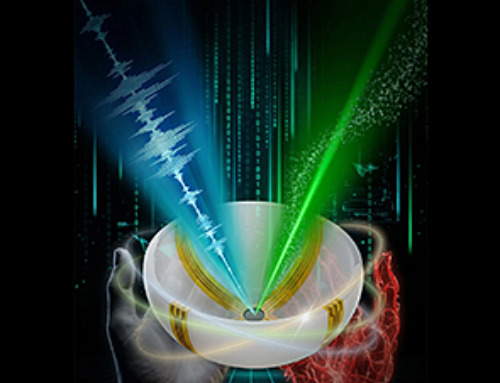A study in JAMA Oncology reveals that MyProstateScore 2.0, a new urine test analyzing 18 genes, surpasses PSA in detecting significant prostate cancers and could reduce unnecessary biopsies by up to 42%.
A new urine test that measures 18 genes associated with prostate cancer provides higher accuracy for detecting clinically significant cancers than PSA and other existing biomarker tests, according to a study published on April 18 in JAMA Oncology. The urine test, MyProstateScore 2.0 (MPS2), was shown to meaningfully reduce unnecessary prostate biopsies while providing highly accurate detection of worrisome prostate cancers, the researchers concluded.
"In nearly 800 patients with an elevated PSA level, the new test was capable of ruling out the presence of clinically significant prostate cancer with remarkable accuracy. This allows patients to avoid more burdensome and invasive tests, like MRI and prostate biopsy, with great confidence that we are not missing something," said Jeffrey Tosoian, MD, assistant professor of Urology and director of Translational Cancer Research at Vanderbilt University Medical Center, who is first author of the study.
Jeffrey Tosoian, MD, assistant professor of Urology and director of Translational Cancer Research at Vanderbilt University Medical Center, who is first author of the study.
Credit: Vanderbilt University Medical Center
Background on Prostate Cancer Screening
Prostate cancer is the most common cancer and the second leading cause of cancer death among men in the U.S. The PSA blood test has been widely used as the initial step in prostate cancer screening. Although PSA is elevated in the vast majority of men with prostate cancer, it is also elevated in a significant proportion of men without cancer.
As a result, the use of elevated PSA alone to prompt a prostate biopsy results in numerous unnecessary biopsies. Although generally safe, prostate biopsies are invasive, uncomfortable, and carry some risk of worrisome complications. Therefore, for patients with an elevated PSA, there is a great need for a second-line test to better identify which men truly need a biopsy and which do not.
Development of MPS2
Because some low-grade, prostate cancers do not require treatment and can be safely monitored with an approach termed active surveillance, the MPS2 test was developed to detect more specifically the higher-grade, "clinically significant" cancers in need of early detection and treatment.
To do this, the research team analyzed prostate tumors from across the U.S. to identify novel genes more often detected in the presence of significant cancers. The most informative 18 genes were combined into the MPS2 test, which was then tested in a National Cancer Institute trial of men with an elevated PSA level.
Uniquely, the authors were able to compare the novel test to other prostate cancer tests, including the original, two-gene MPS test.
Study Results and Comparison
The study involved 743 men with a median age of 62 years and a median PSA level of 5.6. While existing biomarker tests could have avoided 15% to 30% of unnecessary biopsies (i.e. biopsies that were negative or found low-grade cancers not requiring treatment), use of MPS2 would have avoided 35% to 42% of unnecessary biopsies without missing any additional diagnoses of clinically significant cancer.
The improvement was even more pronounced in men with a history of a previous negative biopsy, reducing the rate of unnecessary biopsies from 46% to 51% with use of MPS2, as compared to 9% to 21% for existing tests.
Future Research and Limitations
Multiparametric magnetic resonance imaging (mpMRI) is another second-line test that has been utilized, but while it can improve detection of clinically significant prostate cancer, interpretation of the results can be subjective and vary significantly. The authors also noted that mpMRI is not available in some community settings and is not an option for some patients. The current study was not designed to compare biomarkers to mpMRI, but the researchers are currently conducting a prospective, multicenter trial for that purpose.
In patients shown to be without clinically significant prostate cancer by the new test, the authors concluded that the "externally validated performance of MPS2 supports its effectiveness in accurately ruling out the need for mpMRI and biopsy altogether." They noted a limitation of the study was that only 13% of participants were African American. Because prostate cancer is more prevalent among African American men, the research team is currently pursuing further analyses in more racially diverse populations.
For more on this research, see New Urine-Based Test Detects High-Grade Prostate Cancer.
Reference: "Development and Validation of an 18-Gene Urine Test for High-Grade Prostate Cancer" by Jeffrey J. Tosoian, Yuping Zhang, Lanbo Xiao, Cassie Xie, Nathan L. Samora, Yashar S. Niknafs, Zoey Chopra, Javed Siddiqui, Heng Zheng, Grace Herron, Neil Vaishampayan, Hunter S. Robinson, Kumaran Arivoli, Bruce J. Trock, Ashley E. Ross, Todd M. Morgan, Ganesh S. Palapattu, Simpa S. Salami, Lakshmi P. Kunju, Scott A. Tomlins, Lori J. Sokoll, Daniel W. Chan, Sudhir Srivastava, Ziding Feng, Martin G. Sanda, Yingye Zheng, John T. Wei, Arul M. Chinnaiyan, EDRN-PCA3 Study Group, Ian M. Thompson, Mohamed Bidair, Adam Kibel, Daniel W. Lin, Yair Lotan, Alan Partin, Samir Taneja, David H. Howard, Meredith M. Regan, Jack Groskopf, Jonathan Chipman, Dattatraya H. Patil, Douglas S. Scherr, Jacob Kagan, Jing Fan, Aron Y. Joon, Leonidas E. Bantis and Mark A. Rubin, 18 April 2024, JAMA Oncology.
DOI: 10.1001/jamaoncol.2024.0455
Tosoian is co-first author with Yuping Zhang, PhD, and Lanbo Xiao, PhD, professors at the University of Michigan, where Tosoian and Arul Chinnaiyan, MD, PhD, initiated the study. Chinnaiyan and John T. Wei, MD, are the study's senior authors. Other Vanderbilt researchers who contributed to the study are Nathan Samora, MD, and Hunter Robinson, MD.
The study received funding support from the Prostate Cancer Foundation Young Investigator Award (Tosoian), Michigan-Vanderbilt EDRN Biomarker Characterization Center (U2C CA271854), and the EDRN DMCC (U24 CA086368).
News
These two viruses may become the next public health threats, scientists say
Two emerging pathogens with animal origins—influenza D virus and canine coronavirus—have so far been quietly flying under the radar, but researchers warn conditions are ripe for the viruses to spread more widely among humans. [...]
COVID-19 viral fragments shown to target and kill specific immune cells
COVID-19 viral fragments shown to target and kill specific immune cells in UCLA-led study Clues about extreme cases and omicron’s effects come from a cross-disciplinary international research team New research shows that after the [...]
Smaller Than a Grain of Salt: Engineers Create the World’s Tiniest Wireless Brain Implant
A salt-grain-sized neural implant can record and transmit brain activity wirelessly for extended periods. Researchers at Cornell University, working with collaborators, have created an extremely small neural implant that can sit on a grain of [...]
Scientists Develop a New Way To See Inside the Human Body Using 3D Color Imaging
A newly developed imaging method blends ultrasound and photoacoustics to capture both tissue structure and blood-vessel function in 3D. By blending two powerful imaging methods, researchers from Caltech and USC have developed a new way to [...]
Brain waves could help paralyzed patients move again
People with spinal cord injuries often lose the ability to move their arms or legs. In many cases, the nerves in the limbs remain healthy, and the brain continues to function normally. The loss of [...]
Scientists Discover a New “Cleanup Hub” Inside the Human Brain
A newly identified lymphatic drainage pathway along the middle meningeal artery reveals how the human brain clears waste. How does the brain clear away waste? This task is handled by the brain’s lymphatic drainage [...]
New Drug Slashes Dangerous Blood Fats by Nearly 40% in First Human Trial
Scientists have found a way to fine-tune a central fat-control pathway in the liver, reducing harmful blood triglycerides while preserving beneficial cholesterol functions. When we eat, the body turns surplus calories into molecules called [...]
A Simple Brain Scan May Help Restore Movement After Paralysis
A brain cap and smart algorithms may one day help paralyzed patients turn thought into movement—no surgery required. People with spinal cord injuries often experience partial or complete loss of movement in their arms [...]
Plant Discovery Could Transform How Medicines Are Made
Scientists have uncovered an unexpected way plants make powerful chemicals, revealing hidden biological connections that could transform how medicines are discovered and produced. Plants produce protective chemicals called alkaloids as part of their natural [...]
Scientists Develop IV Therapy That Repairs the Brain After Stroke
New nanomaterial passes the blood-brain barrier to reduce damaging inflammation after the most common form of stroke. When someone experiences a stroke, doctors must quickly restore blood flow to the brain to prevent death. [...]
Analyzing Darwin’s specimens without opening 200-year-old jars
Scientists have successfully analyzed Charles Darwin's original specimens from his HMS Beagle voyage (1831 to 1836) to the Galapagos Islands. Remarkably, the specimens have been analyzed without opening their 200-year-old preservation jars. Examining 46 [...]
Scientists discover natural ‘brake’ that could stop harmful inflammation
Researchers at University College London (UCL) have uncovered a key mechanism that helps the body switch off inflammation—a breakthrough that could lead to new treatments for chronic diseases affecting millions worldwide. Inflammation is the [...]
A Forgotten Molecule Could Revive Failing Antifungal Drugs and Save Millions of Lives
Scientists have uncovered a way to make existing antifungal drugs work again against deadly, drug-resistant fungi. Fungal infections claim millions of lives worldwide each year, and current medical treatments are failing to keep pace. [...]
Scientists Trap Thyme’s Healing Power in Tiny Capsules
A new micro-encapsulation breakthrough could turn thyme’s powerful health benefits into safer, smarter nanodoses. Thyme extract is often praised for its wide range of health benefits, giving it a reputation as a natural medicinal [...]
Scientists Develop Spray-On Powder That Instantly Seals Life-Threatening Wounds
KAIST scientists have created a fast-acting, stable powder hemostat that stops bleeding in one second and could significantly improve survival in combat and emergency medicine. Severe blood loss remains the primary cause of death from [...]
Oceans Are Struggling To Absorb Carbon As Microplastics Flood Their Waters
New research points to an unexpected way plastic pollution may be influencing Earth’s climate system. A recent study suggests that microscopic plastic pollution is reducing the ocean’s capacity to take in carbon dioxide, a [...]






















